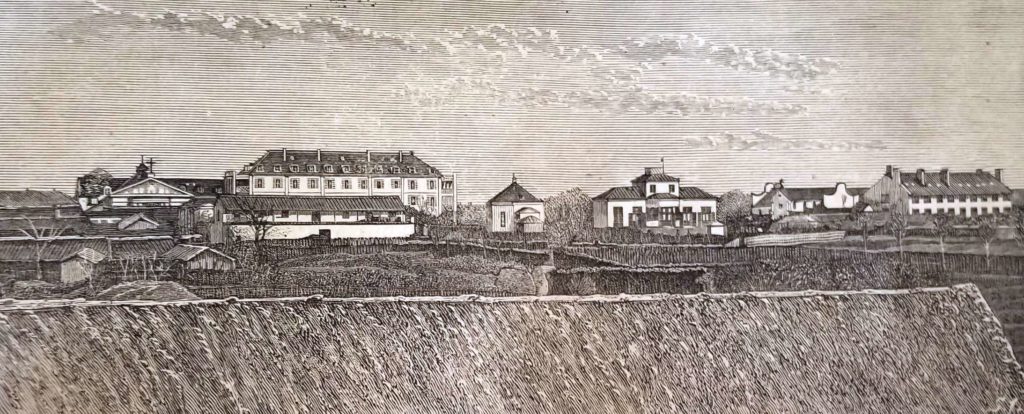Updates to the POCP Website for March 2020: The letters of François Ravary S.J.
28 March 2020This has been an extraordinary month world-wide, and there are as a result no updates to the Census or the Website for March 2020. We hope that everyone is safe and following all the precautions set out in different places around the world, and we can only say that we hope for the best.
Prof. Urrows, however, sent us a communication from his lockdown in Manila. He writes that despite the limitations, and the cancellation and postponement of a research trip on which he is actually supposed to be now, he is still managing to work on his new book, Jesuita Cantat: The Letters of François Ravary S.J., and a European Musical Culture in Mid-Nineteenth Century Shanghai. This research is being funded by the Instituto Ricci de Macau in 2019-2020, of which Prof. Urrows is presently a Research Fellow.
Father Ravary, as those who have read Keys to the Kingdom will know, was the mastermind behind the Shanghai bamboo organ workshop of the 1850s and 1860s. However, he and his colleagues did much more than that: they brought music and music education together as important aspects of the curriculum of the College of St. Ignatius at Zikawei; Ravary founded the first brass band in China (1857), and his colleague, Hippolyte Basuiau founded the first public chamber orchestra (ca. 1870); the organ workshop eventually became part of the musical instrument manufactory at the Tushanwan orphanage, and thus the first place in China where harmoniums were manufactured for public sale.
Prof. Urrows has transcribed and translated eight letters now in the Jesuit archive in Vanves, France, written between 1856 and 1861, for this book. Here is a sample from a letter written in 1857. Ravary writes to Basuiau in Paris about a two-manual and pedal harmonium which was about to be shipped to Shanghai, and of the erection of SHA1857, the ‘Bamboo Organ of Tungkadoo [Dongjiadu]’:
“[W]e have read, re-read, and meditated on the interesting details which you have communicated about the Parisian instrument, now awaited here. Brother Deleuze, our illustrious builder of bamboo organs, is over the moon. He awaits the harmonium, about which so much has been said, with artistic impatience; but he, neither more nor less, wants to compare and evaluate the instrument which you have sent to us with the one that has come from his hands. The future will tell. In a month, the case will be settled.
“Such Chinese pride! you’re going to say? To compare a miserable stick of bamboo with those brass reeds so painstakingly fashioned by a pair of expert hands! What do you expect? Dear Father; it is a pride understandable in an artist, just like a mother madly infatuated with her baby, which she finds beautiful even though it’s the homeliest child in town.
“Joking apart, dear Father, the work on the bamboo organ is now finished. The organ has been placed in a magnificent loft which they built at the Cathedral [of St. Francis Xavier] and which, just to mention in passing, had amplified and decorated the church perfectly. The organ is in place, and after eight or ten days the public will be allowed in to hear it. Our case has been heard, and we have won. Yes, won, because I tell you in all sincerity that our success has surpassed all of my expectations. Today everyone is free to give an opinion, and all the opinions are unanimous in praising the organ and its builder. Thanks to the [design and] construction of the building, and the [resulting] transmission of its echoes, the effect of the [tonal] ensemble is admirable and a marvel!
“The day for the inauguration is fixed for the beautiful Feast of the Assumption [15 August]. On that day, I think, we will have a fine service…”
Further details of the progress on this important new publication from The Project will be posted here from time to time.
One-year hits: 8,350
Total website visits since launch: 13,992

Zikawei, Shanghai, around 1870. The ‘Doric’ Church of St. Ignatius is on the left, followed by the Jesuit Residence, two buildings of the Observatory, and on the right, dormitories and the house of the Auxiliaries of Souls in Purgatory.